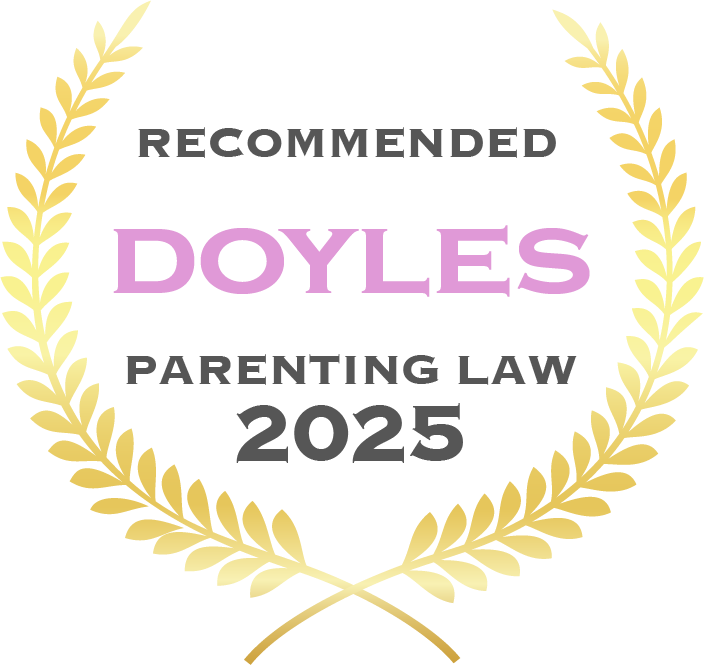
Independent Children’s Lawyers – Giving Children a Genuine Voice
What is an Independent Children’s Lawyer?
An Independent Children’s Lawyer (ICL) is a solicitor appointed by the Federal Circuit and Family Court of Australia to represent the best interests of a child in parenting or other Part VII proceedings. The court’s power to make such an appointment is found in s 68L of the Family Law Act 1975 (Cth).
Importantly, an ICL does not act on instructions from the child. Instead, they form an independent view, drawn from evidence, expert reports, and (where appropriate) direct consultation with the child, about what outcome will best promote the child’s welfare and safety. This role is spelt out in s 68LA.
How We Can Help
At Stanley & Co Lawyers we have acted in matters involving Independent Children’s Lawyers for many years. We know the processes, the expectations, and most importantly, how to keep the focus on your children’s welfare.
If your case may involve an Independent Children’s Lawyer, or you simply want clear, practical advice about parenting disputes, contact Stanley & Co Lawyers today on 08 7001 6135. Speak directly with an expert family lawyer and take advantage of our complimentary 30-minute, no-obligation first consultation. The right legal guidance now can make all the difference to your children’s future.
Helpful Questions & Answers
Heading 1
Heading 2
Heading 3
Heading 4
Heading 5
Heading 6
Lorem ipsum dolor sit amet, consectetur adipiscing elit, sed do eiusmod tempor incididunt ut labore et dolore magna aliqua. Ut enim ad minim veniam, quis nostrud exercitation ullamco laboris nisi ut aliquip ex ea commodo consequat. Duis aute irure dolor in reprehenderit in voluptate velit esse cillum dolore eu fugiat nulla pariatur.
Block quote
Ordered list
- Item 1
- Item 2
- Item 3
Unordered list
- Item A
- Item B
- Item C
Bold text
Emphasis
Superscript
Subscript
When Might the Court Appoint an ICL?
Thecourt considers appointing an ICL where:
- there are serious allegations of family violence, abuse, or neglect;
- the child is alienated from one or both parents;
- there is significant conflict between the child’s parents or carers;
- complex cultural, religious, or medical issues arise; or
- the child is mature enough to express views that should be placed before the court in an independent way.
These factors align with the overarching principle that the best interests of thechild are the court’s paramount consideration (s 60CA) and the detailedchecklist in s 60CC.
How Is an ICL Funded?
Most appointments are funded through the relevant state or territory Legal Aid commission under the Commonwealth ICL program. In some matters—especially complex property cases—the court may order one or both parties to contribute to ICL costs. Your solicitor can give practical advice on likely cost exposure at the outset of your case.
What Does an ICL Actually Do?
Unders 68LA, an ICL must:
- act impartially and focus on the child’s best interests;
- ensure the court is fully informed about relevant issues, including obtaining family reports, medical or school records, and expert assessments;
- facilitate the child expressing views (for example, by interviewing the child or arranging a report writer) unless it would be harmful to the child;
- present evidence and make submissions, including cross-examining witnesses, just as any other party’s lawyer would.
An ICL may also seek orders for a child to be examined or assessed (for example by a psychologist) under s 68M.
Will My Child Have to Go to Court?
Ordinarily, a child does not attend court. The ICL conveys the child’s views (where appropriate) and ensures the child’s privacy is protected. The aim is to shield children from direct exposure to adversarial courtroom processes while still giving them a meaningful say.
How Does the ICL Work With Parents and Lawyers?
Although the ICL acts independently, they will:
- provide disclosure of reports and material obtained;
- engage in settlement discussions and mediations;
- test each parent’s proposals against the child’s welfare; and
- keep an open channel of communication with the parties’ solicitors.
Co-operating with the ICL, by promptly supplying information and focusing on solutions rather than blame, often shortens proceedings and reduces stress for everyone involved.
Frequently Asked Questions
Does the ICL replace my own lawyer?
No. Parents and carers still need their own legal representation. The ICL is an additional, independent voice focused solely on the child.
Can the ICL share everything my child says?
The ICL has a discretion about disclosure. They may withhold sensitive information if revealing it would place the child at risk, but they must explain that decision to the court.
What if I disagree with the ICL’s position?
You can still present your evidence and arguments. The judge weighs allmaterial—including the ICL’s submissions—against the statutory best-interest criteria before making final orders.
Why Engage a Specialist Family Lawyer Early?
An experienced family-law team helps you:
- prepare persuasive evidence, reducing the need for court-ordered investigations;
- communicate effectively with the ICL and other professionals;
- negotiate child-focused settlements that may avoid lengthy hearings; and
- understand, early on, any potential cost responsibilities for the ICL.
27
Combined Years Of Experience
Awards & Affiliations







.png)




.png)


.png)


.png)








